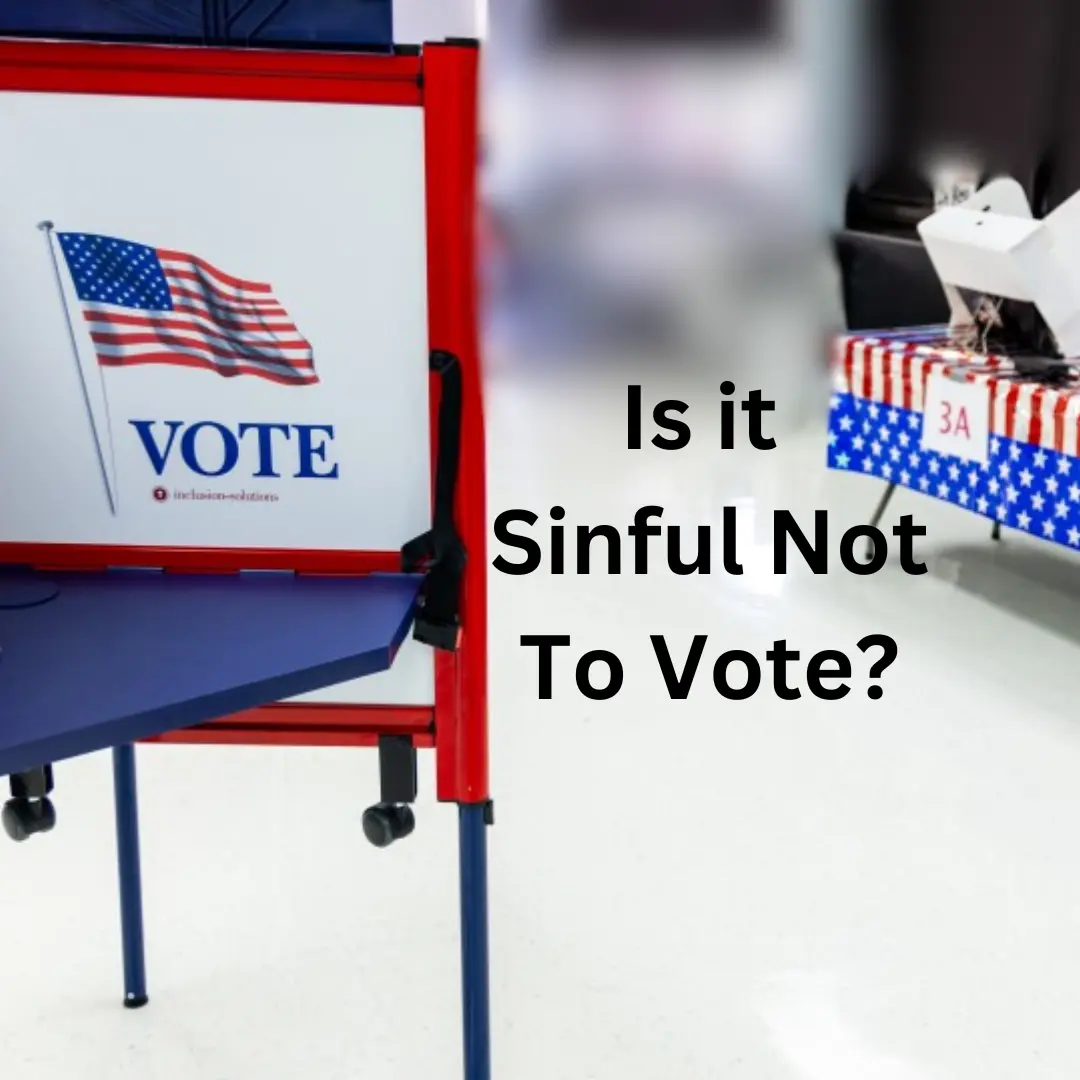
Vicki Yamasaki, Founder, Corpus Christi for Unity and Peace, CUP@corpuschristiforunityandpeace.org
Recently, I was approached by someone who mentioned that due to the platforms of the two presidential candidates this person will NOT be voting in the general election. Catholic doctrine emphasizes that participation in political life is a moral obligation rooted in the dignity of the human person. Responsible citizenship is a virtue and engaging in political life is a duty that stems from one’s baptismal commitment to follow Christ and promote the common good. Voting and engaging in other civic duties are essential for the welfare of the community and the country. All citizens, particularly Catholics, are called to participate actively in public life to ensure that the common good is pursued and that justice is developed.
While the Catechism of the Catholic Church does not come right out and state that abstaining from voting is a sin, the implication is clear that neglecting this responsibility could be seen as a failure to engage in his or her moral obligation to contribute to the common good and uphold the dignity of all individuals.
Voting for the Lesser of Two Evil Candidates
If a person questions voting between two candidates with each having some elements of evil, Church leaders have continuously taught that we have an obligation to vote for the candidate who is the lesser of two evils. When we place our vote for the candidate who is the lesser of two evils we are not voting for their evil. Instead, we are voting to preserve the good that would be lost if their opponent was elected and is more evil and if that more evil person’s legislation were passed which was even worse. – Father Ripperger “Voting for the Lesser of Two Evils” (paraphrased)
We must understand that not all issues carry the same moral weight and it is important for us discern the relative impact of a politician’s positions. When faced with difficult choices, voters should strive to select candidates who align more closely with moral truths. Even then it can be muddy. If we are voting to prevent a greater evil from occurring, then that would indeed be a justifiable reason to vote for the lesser evil.
Here is an example: Catholic commentators have rightly criticized Trump for his relaxed prolife stance … his significantly weakened prolife position is highly disappointing but compared to the abortion platform of the other side, deeply rooted in evil, one can quickly grasp which is the greater evil. Trump’s opponent would ensure abortions are available up to birth and would even allow babies to die that survive the abortion; they would legislate for a federal abortion law to institutionalize Roe v. Wade. On abortion, Trump’s opponent’s platform is objectively the greater evil. The Catholic Church has continuously emphasized that protecting the preborn is the preeminent issue of our time.
DNC, Abortion Mobile Unit, and Cardinal Cupich
It was abominable what we witnessed by the Democratic National Convention. They permitted Planned Parenthood to have their mobile abortion unit parked outside the DNC offering free abortions and vasectomies with vendors giving free hotdogs to women who had free abortions. This is the epitome of evil. Even more shocking is for Cardinal Cupich to still offer his invocation, a weak word salad without one utterance for the protection of the preborn while he hid his crucifix inside his priestly garments. His actions are so scandalous it wounds the entire Body of Christ. Heaven is crying out for a response from the Church, but will one happen? Abortion-minded youth are likely now thinking … “See the Church does not mind that abortions are being done – even a priest gave the prayer and supported the women’s’ right to choose their own bodily autonomy over the babies they wanted to terminate.” Disgusting. What Cardinal Cupich did will lead countless souls to sin.
A Well-Formed Conscience
As we ready ourselves for early voting in a month, Catholics should act according to their conscience in political matters, using a well-formed conscience to guide them to participate in elections. We all know these things, but let us share them with others:
- Protection of Human Life: The sanctity of life from conception to natural death remains the preeminent issue. The Church emphasizes the obligation to oppose candidates who threaten life and advocate for abortion and euthanasia. This reflects a primary commitment to uphold the dignity of every human being.
- Family and Marriage: We must advocate for politicians who endorse the integrity of the family unit and the sanctity of marriage as essential for the wellbeing of our society. The sanctity of marriage between one man and one woman is a significant issue in the context of voting and public policy. The marriage between a man and a woman is the foundation of society.
- Religious Liberty: Voting for candidates who preserve religious liberty is critical as these are fundamental rights which are seriously being threatened.
- Natural Law and Moral Order: Voting to protect against attacks by politicians or laws that undermine natural law is a significant concern. The Church teaches that natural law is a fundamental aspect of moral order, which is accessible to human reason and reflects God’s design for humanity. Any politician that advocates contradicting natural law should be seen as unjust and threatens the very fabric of our society.
The Forming Consciences for Faithful Citizenship document emphasizes that Catholics must not support candidates or policies that promote intrinsically evil acts, such as those that undermine the dignity of human life or reshape or undermine natural law.
You can refer to the USCCB document entitled “Forming Consciences for Faithful Citizenship worth prior to voting and share it with others.
